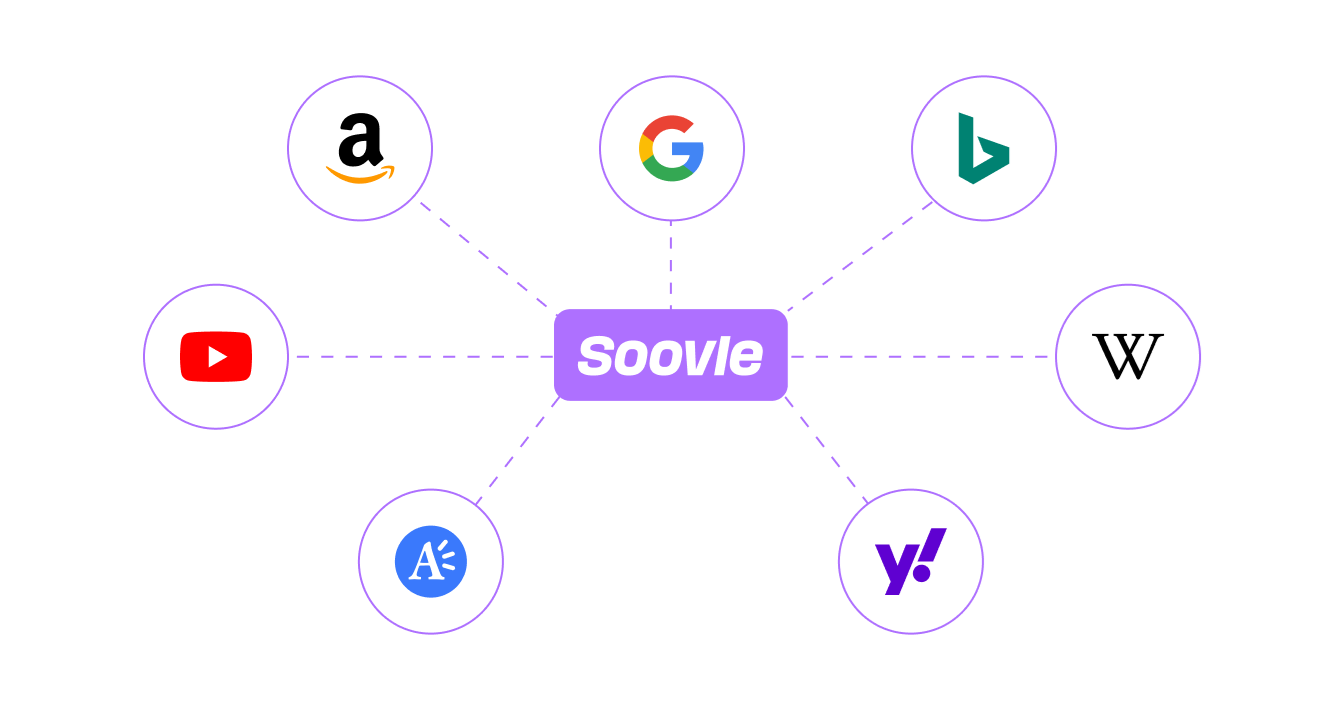About SEO.com
👋SEO.com is the ultimate destination for all things SEO. With a track record of excellence and a team of seasoned experts, SEO.com is your go-to SEO company for optimizing your online presence. From keyword research to content optimization and backlink strategies, trust SEO.com to elevate your website to the top of search engine rankings.

Soovle Keyword Tool
Soovle is a free keyword tool that you can leverage to tap into search suggestions and completions from the leading providers across the internet. It’s user-friendly, lightning-fast, and incredibly efficient. Soovle delivers real-time related keywords from all the major search engines simultaneously, giving you a holistic view of topics connected to your main keyword across various platforms.
Unlock the power of comprehensive keyword insights at no cost and elevate your search strategy with Soovle today!
Wondering how your website is doing? Use our free website traffic checker to see how much traffic your website gets!



